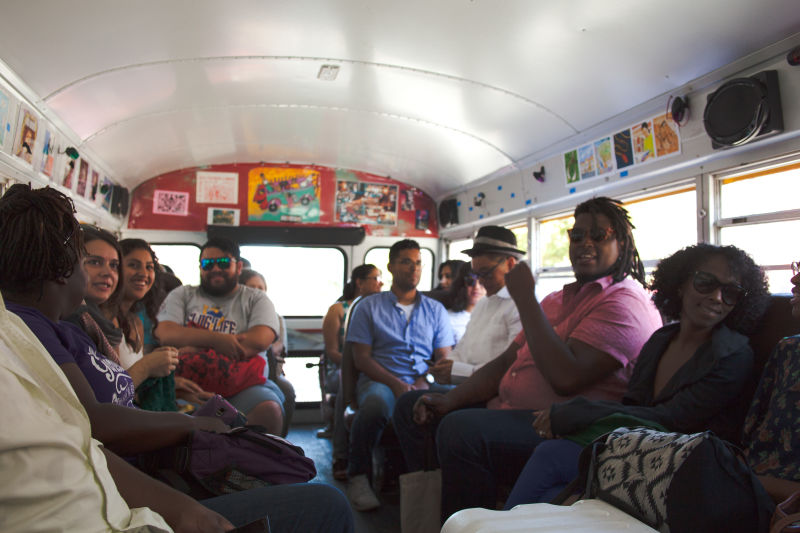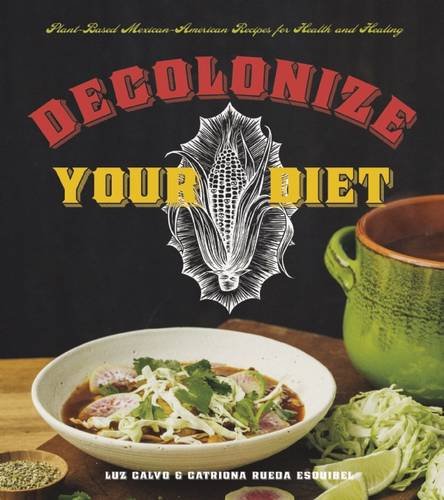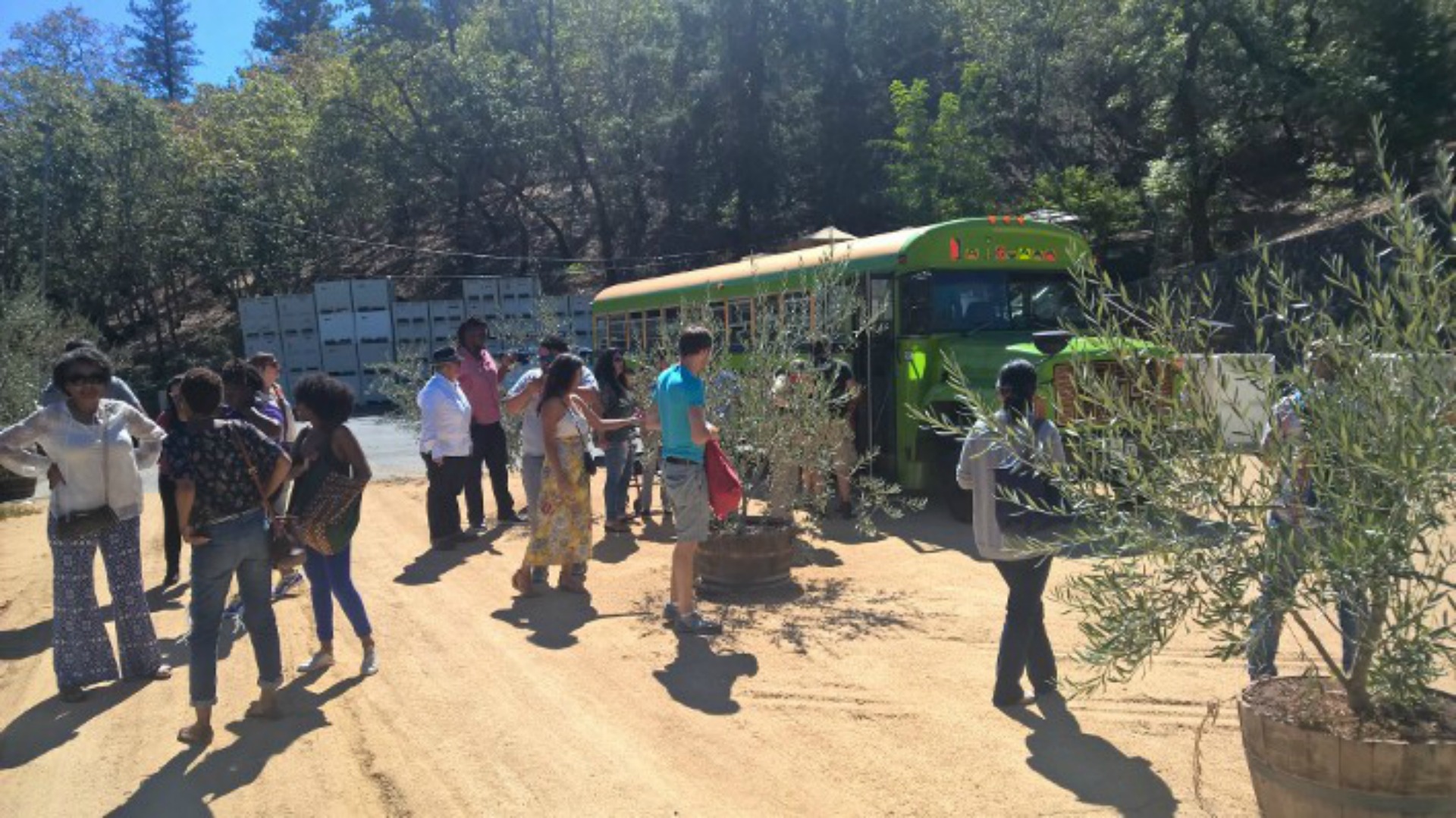When the Sacramento book club Sistahs on the Reading Edge, composed of ten black women and one white woman, was kicked off the Napa Valley Wine Train for making too much noise--among other complaints, they were accused of laughing too loudly--the outcry was immediate. The CEO quickly apologized, but the story was already picked up nationally from ABC to BET, and the hashtag #LaughingWhileBlack went viral. Locally, the Oakland Food Policy Council knew they had to respond. They put together the Wine Soul Train, a tour of black, Asian and Latino-owned wineries via the colorful “Mexican Bus.” The event was a success, quickly selling out, and the council hopes to continue hosting the event in the future.
The event was the perfect example of the Oakland Food Policy Council’s approach to combating the city’s food issues: focusing on actionable, specific ways to create a more equitable food system while examining the deeper, systemic racial and economic inequities that lead to such an unequal system in the first place.
The council is the result of a 2006 report then mayor Jerry Brown commissioned on the state of food and hunger in Oakland. The report called for the formation of a council to address issues within Oakland’s food system, and the council officially formed in 2009.
Now, the council is made up of 21 members who are divided into four main areas of focus: economic security and development, food access, procurement policy and urban agriculture. All meetings are open to the public.
In just a few years, the council has made impressive strides. They’ve worked to get food trucks allowed in areas where they were previously prohibited, helped increase the amount of food insecure residents signed up for food assistance programs, and last year, they published the “Hustle Guide,” which covers everything people need to know to start their own mobile or cottage food business. One of their biggest accomplishments was their “Right To Grow” campaign, which helped push the Oakland city council to relax the permitting around urban agriculture, making it easier for residents to grow their own food.
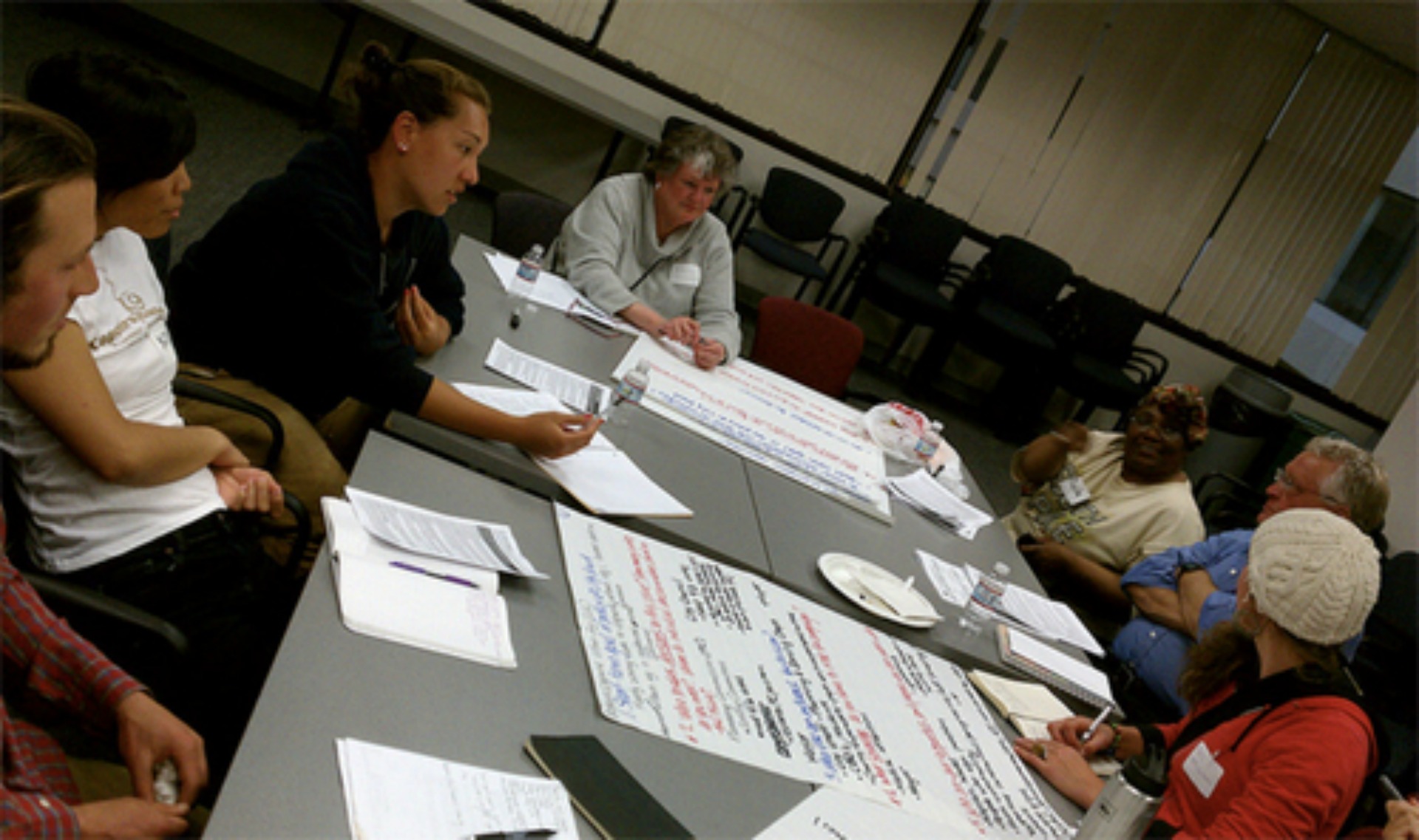
Over the last few years, they’ve also made an internal shift to viewing food issues through the lens of racial and economic inequities--mainly in part due to their current executive director, Esperanza Pallana.
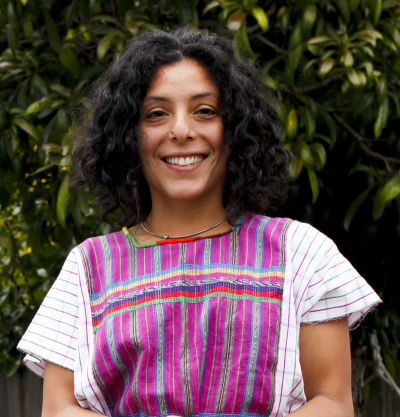
As soon as Pallana read an article about the council's formation, she knew she wanted to get involved. But when she attended the first meetings in 2009, she was disenchanted with what she saw: a sea of white faces--she estimated that over 80% of the council was white--who were mainly academics and professionals.
